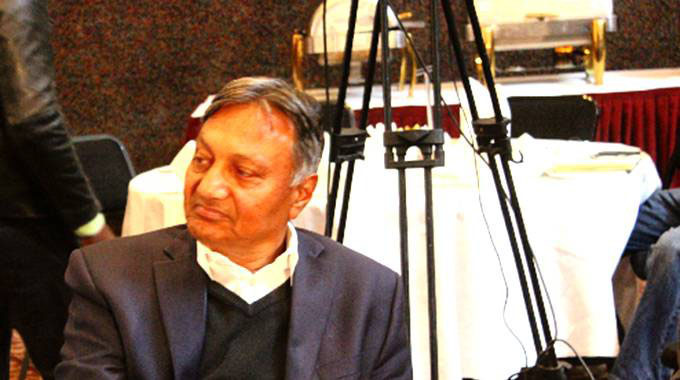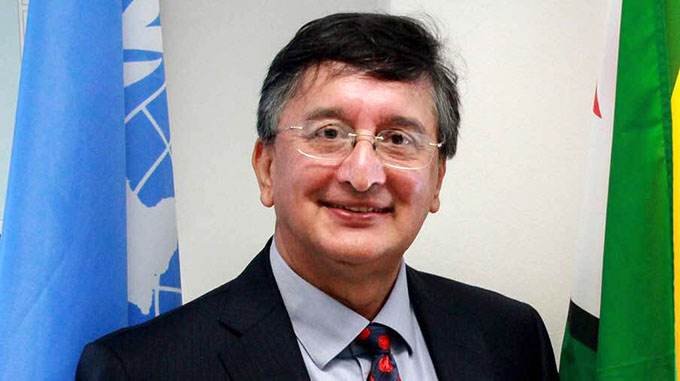‘Free float exchange system catastrophic’

Golden Sibanda Senior Business Reporter
ZIMBABWE risks plunging into rampaging price inflation if it liberalises foreign exchange controls, according to the proponents of a managed exchange rate system.
But critics of the system argue that fixing the exchange rate is only delaying inevitable price spiral — inflation. Zimbabwe’s annualised inflation raced to 5,39 percent in September 2018 from 4,83 percent a month earlier.
The Reserve Bank of Zimbabwe has maintained a fixed exchange rate system of the bond note and US dollar, insisting they rank at par (1 to 1) to entrench the multi-currency system and preserve price stability.
The central bank says liberalising the exchange rate system without adequate foreign currency reserves would be a catastrophe and believes Zimbabwe requires a gradual process of liberalisation; taking into account the need to build reserves and re-engage the international community to open up foreign lines of credit.
The country requires foreign currency cover of $1 billion, against current reserves of $200 million, according to the RBZ.
University of Zimbabwe professor of economics Ashok Chakravati said while a free float exchange rate system would be appropriate in the medium to long term, a managed exchange regime was critical for now, to avoid parallel market driven price spiral.
“In the medium term we have to go that way,” Prof Chakravati said.
“But under the current circumstances it is not viable because if you have a free floating exchange system and a big shortage of foreign currency, the rate can go very high and we invite hyperinflation.”
Zimbabwe adopted the multi-currency system in 2009 to tame hyperinflation that reached 500 billion percent, according to International Monetary Fund. The RBZ says inflation peaked at 231 percent in June 2008.
Recently, Zimbabwe saw a spike in prices on the back of wild swings in exchange rates on the parallel market, as public expenditure driven demand ratcheted the pressure on the demand for elusive hard currency.
“The price of goods could go up 10 times. What we need is a managed foreign exchange system, which is what the RBZ is currently doing (while) allocating foreign currency (for importation of) essential commodities at 1 to 1. For the balance of the foreign exchange there should be an interbank market,” Prof Chakravati said.
“It would be hybrid system where half the money is allocated to essential commodities at one to one and the balance you can use free float system, so it would be hybrid (foreign exchange) system; that is what I would recommend.”
But amid thriving parallel market for foreign currency in a largely dollarised economy where hard currency is in acute short supply, critics of fixed exchange rate have called for a liberalised exchange system as part of a process to re-dollarise and stabilize the economy.
The black market for foreign currency has been blamed for driving price inflation, since the sellers, while accepting payment in bond notes or real time gross settlement (RTGS) transfers have started benchmarking prices in line with foreign exchange rates on the parallel market. Government says the steep price increases are not justified.
This comes as most businesses struggling to get foreign currency under the RBZ’s priority list framework are resorting to parallel market while other key sectors of private and public consumption, such as fuel, power and wheat, receive allocations from the apex bank.
Harare economist Brains Muchemwa concurred that a free float system would result in price inflation with purchasing power likely to be eroded by about 30 percent,
This would stabilise in the long run, he reckoned. Mr Muchemwa said the current approach was not sustainable pointing out that Government was essentially subsidising private consumption while it did not have resources to sustain the practice over time. He said with broad money supply vaulting 47 percent in the 12 months to July 2018, Zimbabwe was bottling up inflationary pressure, which when it finally bursts could erode purchasing power by as much as 100 percent. Mr Muchemwa said inflation spike is not a matter of how it comes, but when it will do so.
“It would never make sense for Zimbabwe and for any country for that matter to be borrowing offshore to finance private consumption in an economy under the guise of trying to maintain exchange rate at 1 to 1 because what we are just doing is piling up our (external) debt for no benefit because we are not supporting the productive sector,” Mr Muchemwa said.
“The problem with private consumption is that we are now subsidising the whole region, which is why basic commodities are now being exported into the whole region.
“We import intermediate goods at 1 to 1 (exchange rate); an artificially low exchange rate; so that is subsidising the producers who then sell into the region because it is more attractive, which is why we end up having acute shortage of basic commodities,” he said.
“We are borrowing offshore to finance private consumption in Zimbabwe and the whole region, which in essence does not make (economic) sense, that is why people are coming to buy fuel here, coming to buy sugar and are coming to buy cooking oil. Government has no capacity to continually subsidise private consumption in this country.
“So, the current subsidy on fuel and everything will be short-lived because the ficus has no capacity and no foreigners who will continuously lend money to Zimbabwe for private consumption when our current account has always been in deficit for the last 20 years.”








Comments